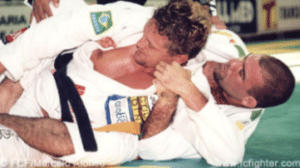Risk versus Consequence
Risk versus Consequence
A while ago, I heard someone ask the following question, “What is the difference between Risk and Consequence?”

I must confess I had difficulty in responding, even though I’ve been living and working with Jiu Jitsu my whole life, dealing with adrenaline, defeat, victory, joy, sadness, anxiety, anger, confidence (or lack of it) — but I have never stopped to think about that question.
I like to practice stoicism on a daily basis which teaches us how to focus on things in our control, rather on those we can’t. Obviously, there are times when this is difficult, but considering everything in life is ‘training,” I practice hard and I can feel my evolution.
When we apply this concept to challenges, it becomes even more important.
Let’suse the analogy of the Jiu Jitsu fight — what is the best way for you to win a fight? Probably imposing your game, encouraging your opponent to make a mistake, and capitalizing on that error. At which point you have the upper hand and can use your favourite submission. Am I correct? Bringing my opponent into my game implies that I have to take action, and this is in my control. The reaction of my opponent starts to become more predictable when he reacts to something I know. Again, it is up to me to connect the next technique, but in this way I am in control of the fight and its connections until the final submission.
Things that are under your control should generate action and this has consequences for new action under your control. Your focus should be concentrated on what you are currently able to do, as it will minimize the risks.
Are there risks?
Conceptually, risk is composed of probability and consequence. The more you train, the more you understand the dangers and you can manage them, minimizing the risk.
I watched a documentary by a professional climber, Alex Honnold, a free soloist who climbs routes alone, without equipment.

This film documents his ascent of Freerider, one of the routes up the vertical rock face of El Capitan in Yosemite National Park. Those that have managed the climb, have done so with equipment, often taking more than 30 hours to do so. Alex is a strategist — he defines a route, studies the route with fanatical detail, trains each section, studies every handhold, foothold and sequence. He exhaustively trains the techniques necessarily throughout each stage, memorizing the movements, and visualising the climb with all conceivable outcomes. He knows what is possible with each and every movement, including the bird that will predictably come out of a crevice on a crucial move.
Another aspect crucial for the climb, that Alex trained exhaustively is concentration. He focused on the technique, learned to compartmentalize fear, learned to control his breathing and connect with the mountain and the mission of conquering it. Most people might see those things as the opponent, he saw it as a necessary obstacle to his goal.
Often asked about the risk of dying by journalists and fans in general, Alex explains very clearly how people misunderstand risk, going on to explain the ‘risk versus consequence’ relationship.
“People often confuse risk with consequence. The consequence of me slipping and falling off the mountain is probably my death, but the risk is associated with me getting my technique wrong.”
Because risk is comprised of risk x consequence, if he trains a lot, the probability of making a mistake is low, lowing the risk.
This explanation made me reflect and see this difference much more clearly.
Let’s look at the moment we’re living in, where people are basically dividing into two groups: those who don’t believe in risk, and those who are terrified of the consequence.
Let’s look at other facts to offer perspective. Roughly 1.35 Million people die every year from car accidents (WHO). Even with road safety guidance and modern car equipment that helps a lot to minimize the problem, the numbers are still frightening, But, would you stop driving your car, or get in the car with someone else driving? Probably not, because although you know there is a risk, you understand that that even if you’re involved in an accident, (without excessive speed) the probability of it being fatal or causing serious damage is low.
In Brazil there are more than 60,000 murders a year, a shameful and frightening number. Knowing that number, would you stop going to work or having fun? Probably not, because you understand that taking security measures can minimize risks and consequence if anything were to happen.
If we look more closely at our current moment amidst the global pandemic COVID 19, we will also see a frightening number of deaths, creating feelings of insecurity and fear. Looking at the statistics a little more, I understand that the risk is manageable, and as with violence or car accidents, if we take preventive and safety measures, we can live our lives “normally” and assume the small degree of risk that the virus poses to us.
What is within our control?
Our health, what we eat (which affects our immune system), what we choose to think, how we exercise. We have enormous freedom about what we choose to think. We can discipline our mind with positive thoughts, focusing on what we can or can’t do. Considering anxiety is focusing on what we can’t control, this easy mental practice can help hugely with reducing worry and fear.
Being healthy is without a doubt the best defence against the virus and this is, in most cases, in your control.
People who carry a pre-existing disease or are more vulnerable should be looked after very carefully and perhaps remain in isolation for a longer time until we have a vaccine, or the virus is eventually eradicated, but this could take a long time. If, however you are not in this risk group, and are healthy, do not let yourself be overcome by the fear of consequence that may never happen — learn to assess the real risk for you.
And if it makes sense to you, LIVE.
After all, we never know what tomorrow will bring and we need to learn how to live in the present moment as it comes along.
Hug,
Fabio Gurgel.



